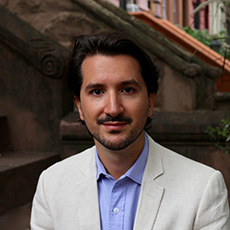Ahead of the general election, the United Kingdom is bracing for the spread of false and malicious information – but the problem extends far beyond the country’s borders. In countries such as India, Brazil and the Philippines, populist leaders are misusing digital platforms to sway voters – and their strategies are usually much more effective than the more conventional efforts of their mainstream counterparts.
Three years after the Cambridge Analytica scandal, elections around the world are no safer from covert information operations carried out by political candidates and their fervent supporters. Freedom House examined 30 countries that held elections over the past year and found evidence of online interference in 24.
Populist leaders and disinformation
Populist leaders and far-right groups have grown adept at creating viral disinformation and harnessing networks that disseminate it. Coordinating with government-friendly media personalities and business magnates, online mobs transmit conspiracy theories, inflammatory views and misleading memes from the internet’s extreme fringes to the political mainstream. Some networks are directed by state or party officials, while others are semi-autonomous, lending support to their political champions and receiving encouragement and approval in return.
Nowhere was this phenomenon more apparent than in Jair Bolsonaro’s successful October 2018 presidential bid in Brazil. Just as consultants stole data from Facebook to develop psychological profiles of millions of Americans three years ago, political operatives in Brazil scraped phone numbers from social networks and automatically added voters to specially created WhatsApp groups according to location, gender, and income level. These groups provided the perfect petri dish for a new type of unscrupulous electioneering. Group administrators pumped out an average of 1,000 posts per day, creating echo chambers of pro-Bolsonaro disinformation.
As with billionaire Robert Mercer’s financial support for both Cambridge Analytica and pro-Trump super PACs, Brazilian businessman Paulo Marinho funded large-scale WhatsApp disinformation efforts, ensuring a level of plausible deniability by separating his activities from those of the official Bolsonaro campaign. And just as Stephen Bannon turned from Cambridge Analytica founder to Trump administration appointee, two of the political operatives who spearheaded Marinho’s effort were later hired by the Bolsonaro administration.
Other populist leaders like Narendra Modi and Rodrigo Duterte have also built new information networks to influence voters. During India’s general elections in April and May 2019, millions of users were flooded with misleading and inflammatory content on Modi’s “NaMo” app, which had been marketed to all Indians as a way to keep up with official government news but is in fact owned and run by the prime minister’s political party. During the May 2019 elections in the Philippines, candidates paid social media personalities with small to medium-sized followings to promote their campaigns on Facebook, Twitter, and Instagram, sprinkling political endorsements among sexually suggestive images and pop-culture news.
Exploiting human emotions
It would be wrong to single out social media manipulation as the only explanation for the rise of right-wing populism. Arguably, more important are the societal conditions that have resulted from neglect or mismanagement by mainstream parties, which foster fear, anger and resentment. But technology platforms allow populists to effectively exploit these human emotions for economic and political gain. Numerous studies have shown how false, shocking, negative, exaggerated and otherwise emotionally charged content tends to spread faster and wider on social media than other types of content. The platforms prioritise these types of posts because they are the ones that keep users most “engaged”, which in turn keeps the companies profitable.
Upholding democracy
The onus is on policymakers, the private sector and civil society to ensure that social media platforms remain a positive force for democracy and do not become conduits for malicious electoral interference.
To maintain a level playing field for political speech, technology companies should develop rapid-response teams to anticipate and address harmful inauthentic behavior. More companies should follow industry leaders in vetting political advertisements for compliance with applicable electoral laws, and all should clearly specify who has purchased each advertisement.
Government also has a role to play. Electoral authorities in most countries have yet to build sufficient oversight mechanisms to identify and curb fraudulent campaigning. Legislators should improve transparency and supervision of online political advertisements and require the conspicuous identification of automated “bot” accounts that are intended to replicate or artificially amplify human activity.
Most of all, governments must rethink their campaign laws so that the risk of punishment for skirting the relevant rules is greater than the potential gains of winning an election. Failure to do so will not only harm fundamental rights such as privacy and free expression, but undermine faith in democratic elections in the digital age.
Adrian Shahbaz is the Research Director for Technology and Democracy at Freedom House. He leads the organization’s analysis on human rights in the digital age, including Freedom on the Net, Freedom House’s annual assessment of global internet freedom. Allie Funk is a Research Analyst for Freedom on the Net, focusing on developments in the United States, United Kingdom, Canada, and the Asia region.


Join the discussion
Comments
Please login to post a comment or reply
Don't have an account? Click here to register.
I don't get it. AI is racist because the way it's configured, i.e. it's the biases we people have is reflected there. Why does the same not apply to social media?